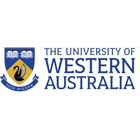Bachelor of Arts – Linguistics
- Home
- Courses
- The University of Western Australia (UWA)
- Bachelor of Arts – Linguistics
Bachelor of Arts – Linguistics
From sounds and words to how language is used in different societies and cultures, linguistics is the study of language and communication. This major aims to provide the broadest grounding in contemporary linguistics and enables you to specialise in your areas of interest. You’ll have the opportunity to work on…
Categories
COURSE DESCRIPTION
From sounds and words to how language is used in different societies and cultures, linguistics is the study of language and communication. This major aims to provide the broadest grounding in contemporary linguistics and enables you to specialise in your areas of interest. You’ll have the opportunity to work on a variety of linguistic topics including grammatical descriptions, language variation, change and history, semantics, anthropological linguistics, or the study of Australian Aboriginal languages.
Course Structure
Our undergraduate degrees offer you a broad range of options allowing you to combine subjects in a way that matches your career goals and personal interests.
You’ll learn to
understand key focuses of, and key concepts in, core sub-areas of linguistics – phonetics, phonology, morphology, syntax, discourse analysis, semantics, pragmatics, sociolinguistics, and historical linguistics
describe key features of major approaches to language structure, use and variation
demonstrate knowledge of the diversity of structures across languages
critically interpret and synthesise the content of scholarly publications in linguistics
Why study this course?
Linguistics is a robust educational foundation that equips you with the core skills an employer looks for, in particular, good communication and thorough analysis
Linguistics is the study of language, and language is key to most human interactions. As such, studying linguistics opens many doors.
Career Pathways
A major in Linguistics provides a foundation for any career that involves language or languages, human social organisation and culture, or the human mind. In addition to research careers, graduates go on to hold careers in language teaching, speech therapy, journalism and broadcasting, translation and interpreting, Indigenous education and support work and information technology, among others. With the spread of language technology and the development of Artificial Intelligence, linguistic expertise is increasingly relevant – AI will not replace human understanding of linguistic structures.
Further Study
This major lays the foundation for further study options at honours and postgraduate level. Students may select from a range of Masters programs including teaching, translation and marketing.
REQUIREMENTS
Entry requirements may vary from country to country. Students are required to complete an international academic qualification equivalent to Australian High School (or equivalent).
English language requirements:
IELTS (academic): Overall minimum score of 6.5, no band lower than 6.0
TOEFL Internet-based TOEFL (iBT): an overall score of 82 or above with a minimum score of 22 in writing, 18 in reading, 20 in speaking and 20 in listening
Pearsons Test of English (PTE) (academic): An overall score of 64 with a minimum score of 59 in the speaking and writing sections, and no less than 54 in the other sections
EDUCATIONAL INSTITUTION
The University of Western Australia (UWA) is a proud member of the Group of Eight and is the only university in Western Australia to be ranked in the world top 100 universities (QS World University Rankings 2023).UWA’s main campus is located in Perth, Western Australia and is home to more than 23,000 students. Perth is Australia’s fourth-largest city with over two million people from a variety of cultures worldwide, a strong economy and vibrant lifestyle. Perth is one of the country’s most affordable cities, the closest major Australian city to Asia, and in the same time zone as most of Asia.
The University of Western Australia (UWA) is a proud member of the Group of Eight and is the only university in Western Australia to be ranked in the world top 100 universities (QS World University Rankings 2023).
UWA’s main campus is located in Perth, Western Australia and is home to more than 23,000 students. Perth is Australia’s fourth-largest city with over two million people from a variety of cultures worldwide, a strong economy and vibrant lifestyle. Perth is one of the country’s most affordable cities, the closest major Australian city to Asia, and in the same time zone as most of Asia.




